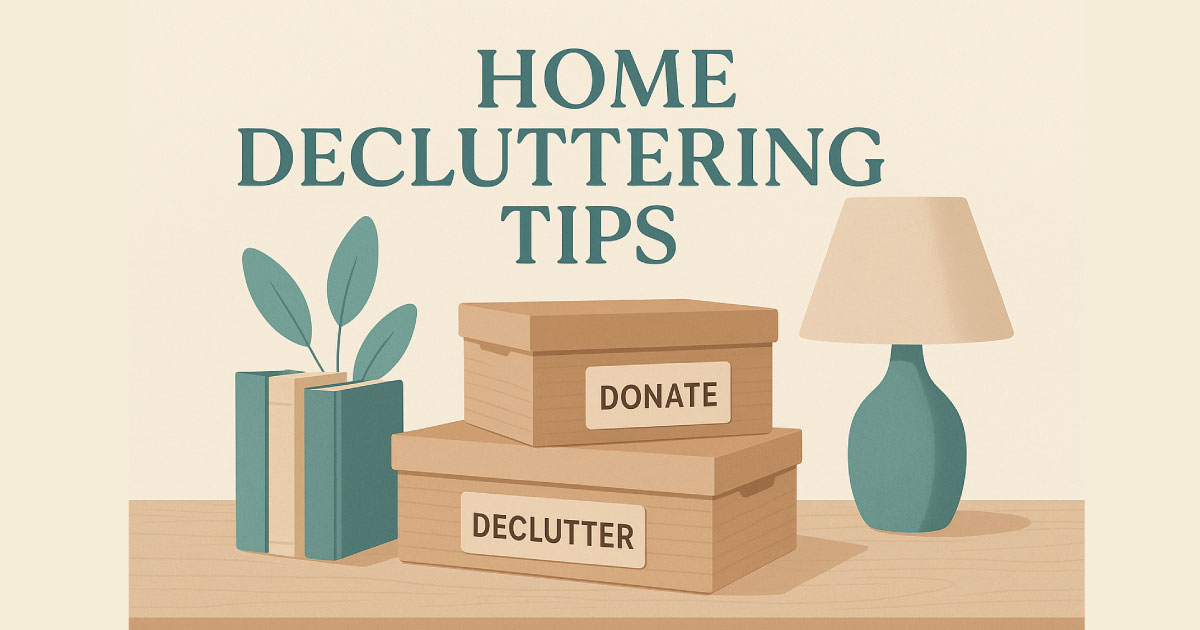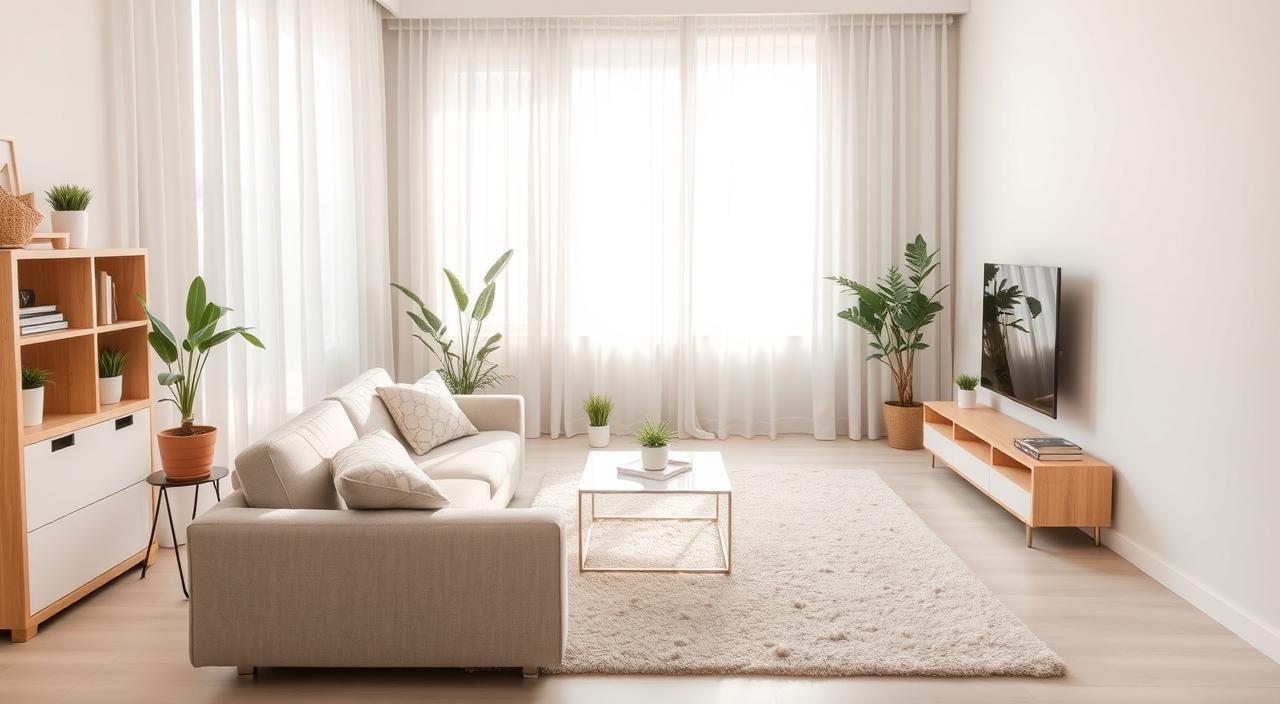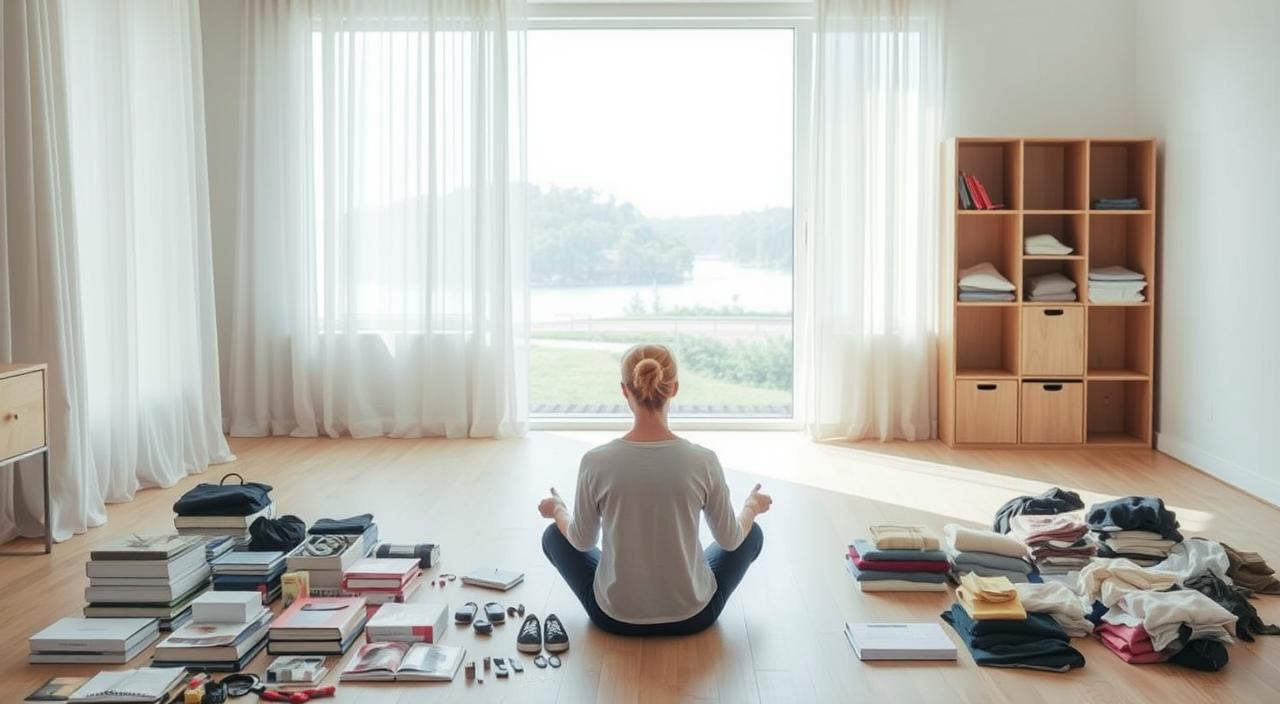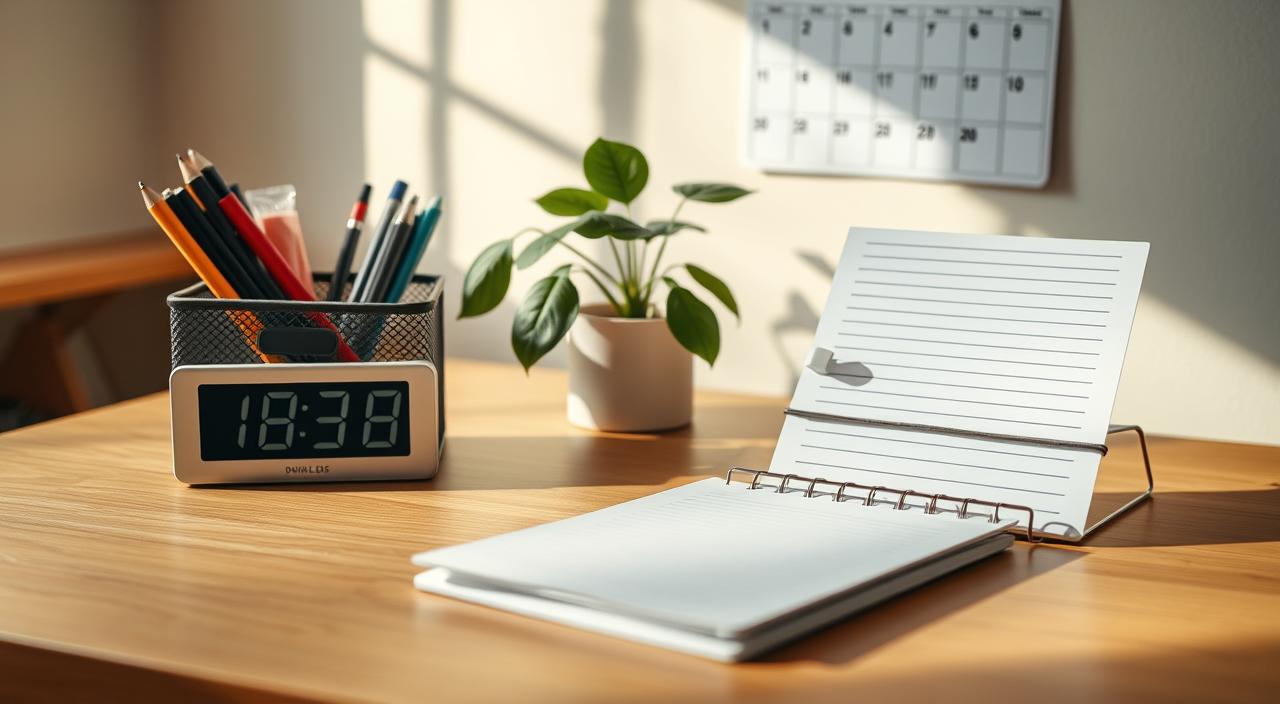
A messy home can cloud your mind. Studies have shown that physical clutter often mirrors mental clutter, leading to stress and difficulty concentrating. In contrast, an organised space fosters emotional wellbeing and a clearer head. This article explores practical home decluttering tips that can improve your mood and transform your daily life.

Key Takeaways
- Physical order often promotes mental clarity.
- Visual simplicity reduces stress hormones.
- Tailored storage solutions streamline routines.
- Progress matters more than perfection.
- Consistent habits create lasting calm.
How Clutter Affects Your Mood
Visual mess triggers cortisol, the stress hormone. This constant low-level stress affects your ability to relax and think clearly. According to recent UK research, 73% of respondents felt anxious when surrounded by disorganised belongings.
Organisation isn’t just about storage – it’s about building a life-supportive environment. When your space reflects your priorities, everything feels lighter. Whether you’re a new parent or changing careers, adjusting your surroundings can anchor your emotions during transitions.
Decluttering Tips for Everyday Calm
Instead of a one-off clear-out, aim for ongoing maintenance. Swedish lifestyle expert Catharina Björkman suggests 15-minute daily tidying sessions. This keeps decision fatigue at bay and makes habits sustainable.
| Method | Effort Required | Best For |
|---|---|---|
| Daily 10-min sweep | Low | Maintaining surfaces |
| Category-based sort | Moderate | Projects & duplicates |
| Full-home overhauls | High | Major lifestyle changes |
Common Emotional Barriers
Letting go is often harder than expected. Guilt over gifts or fear of waste can keep items lingering. Ask yourself: “Does this serve me today?” If not, donate it. Many UK councils offer free bulky waste collection or reuse schemes.
Preparing for a Decluttering Journey
Before tackling clutter, assess your emotional readiness. Ask yourself:
- What matters most in my life now?
- How can my home support these priorities?
- What emotions do I want to feel in each room?
These questions guide practical decisions that align with your lifestyle. Consider documenting your space with photos – they reveal clutter patterns easily overlooked during everyday life.
A Gradual Approach: Sustainable Decluttering

Instead of exhausting weekends, sprinkle small actions across your week. Drop one item into a donation box daily. Research shows people who declutter gradually maintain tidier homes 40% longer.
Strategic donation bins:
- Hallway: outgrown coats
- Kitchen: duplicate gadgets
- Bedroom: unworn clothes
When full, schedule a pickup from services like British Heart Foundation’s furniture collection.
Organising Like a Pro
Category vs. Room-Based Decluttering
Professional organisers recommend sorting by category – e.g., clothes, books, paperwork – rather than by room. This helps identify duplicates and patterns.
| Approach | Best For | Time Needed |
|---|---|---|
| Category Sorting | Reducing duplicates | 2–4 hours per group |
| Room-by-Room | Quick wins | 30–90 mins per space |
Handle sentimental items last. Start with low-emotion zones like the kitchen or bathroom.
Managing Time & Momentum
Decluttering doesn’t have to take over your schedule. Treat it like learning an instrument – practice a little each day.
| Schedule Type | Duration | Use Case |
|---|---|---|
| Daily micro-sessions | 15 minutes | Maintenance & habit forming |
| Weekly blocks | 1–2 hours | Deeper zone work |
| Monthly refreshes | 30 mins | Closet or pantry checks |
Reward small wins – a clean drawer deserves a good cup of tea. Use a checklist or app to track progress and stay motivated.
Professional Help: When It’s More Than You Can Manage
When clutter feels overwhelming, calling a professional house clearance service can make all the difference. These providers handle everything from old mattresses to attic cleanouts and partner with charities for reuse.
Ask these before hiring:
- What % of goods are recycled?
- Do you issue donation receipts?
- How are hazardous items handled?
Smart Storage Solutions for a Tidy Home

Effective storage doesn’t just hide mess – it simplifies life. By using overlooked nooks like under beds or behind doors, you can store more without adding visual clutter.
| Storage Idea | Ideal For | Cost Estimate |
|---|---|---|
| Under-sink trolleys | Cleaning products | £15–£40 |
| File-folding in drawers | Clothes organisation | Free method |
| Wall-mounted spice racks | Small kitchen tools | £10–£30 |
For deeper drawers, try adjustable dividers. Ikea, Poundland, and Muji offer budget-friendly options that fit most drawer types.
Integrating Organising Into Daily Routines
Routine habits help your space stay tidy long-term. Try these tricks:
- Sort post while the kettle boils
- Tidy surfaces before bed
- Hang coats as you enter the house
Assign a permanent home for every daily item. Mugs should live near the kettle, not behind wine glasses. This small change saves time and reduces morning stress.
Conclusion: Declutter for Mental Space and Daily Ease
A tidy home isn’t about chasing perfection—it’s about creating peace. By applying these home decluttering tips, you’ll not only lighten your physical space but also your mental load. Whether through micro-routines or expert help, clarity is always within reach. Start with one drawer and see how far it takes you.

 CALL NOW
CALL NOW